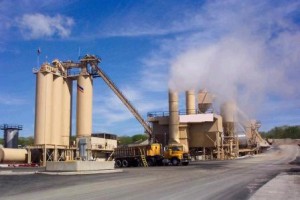Asphalt plants are located all across the country, with locations in both rural areas and more urban ones. In most cases, these plants are a valuable part of the communities they’re in. However, some people have concerns about the environmental impact that these plants have. Thankfully, we know a great deal about how asphalt plants effect the world around us.
In order for these plants to successfully produce asphalt, they must mix a number of materials together. These materials may include gravel, sand, and crushed rock. Chemical additives are sometimes used in order to make the mixing process go more smoothly.
While this may sound alarming, plants employ multiple systems that are designed to control emissions. They work directly with the U.S. Environmental Protection Agency, also known as the EPA, to ensure that they’re not negatively impacting the air that’s around them.
10 years ago, after conducting a detailed study, the EPA concluded that mobile asphalt plants aren’t a significant source of air pollution. Since then, plants have taken even more steps to reduce their emissions. Subsequent studies have verified that these plants do not have any kind of significant negative impact on the environment.
Today’s asphalt plants use less energy and consume fewer resources than the plants of years ago. And the prices for asphalt plant also reduced, They use more recycled materials, and regularly work to decrease the size of their carbon footprint.
While there are numerous potential emissions at any asphalt plant, the facilities work hard to keep them under control. For example, the dust that these plants generate is captured by a filtering system. Different facilities employ different systems, but one thing is always true: the dust isn’t ever released into the environment.
When driving past an asphalt plant, one might notice visible emissions coming from its stack. Although this may seem alarming at a glance, it isn’t a cause for concern. In the vast majority of cases, this is steam, not smoke, which means it won’t negatively impact the air around the plant.
There are also a number of ways in which asphalt plants benefit the environment. In fact, asphalt pavement is the single most recycled material in the United States. Because asphalt is both inert and waterproof, it’s also used to protect things like water reservoirs and fish hatcheries from outside substances. Asphalt is also considered to be one of the best materials for sequestering carbon.
The negative effects asphalt plants have on the environment are extremely minor, but the positive effects they have are major. These plants make a welcome addition to any community, and can help to make the world a better place. There are a number of things to appreciate about asphalt and the asphalt batching plant manufacturers in the role of the environment.
